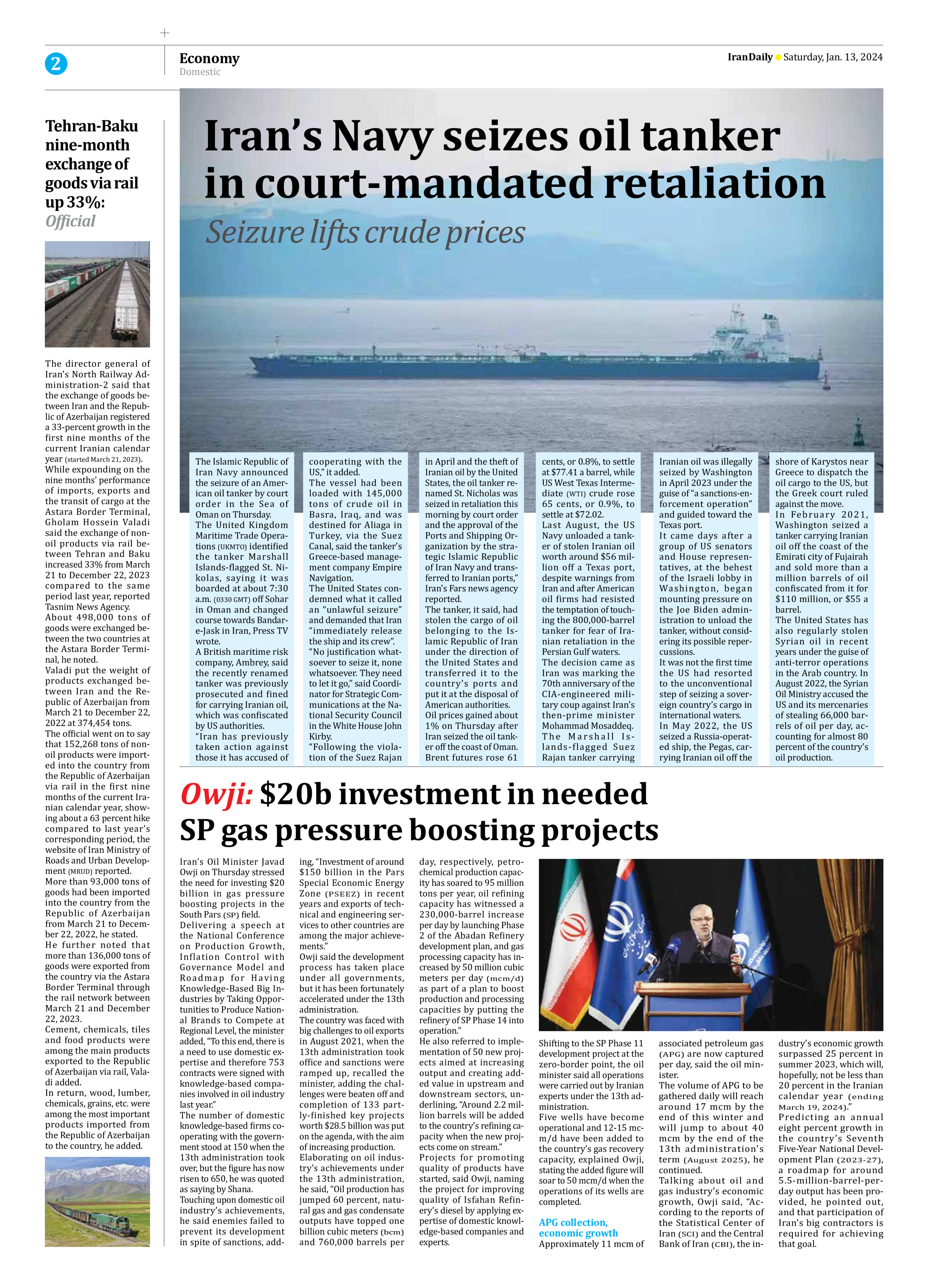
Iran’s Navy seizes oil tanker in court-mandated retaliation
Seizure lifts crude prices
The Islamic Republic of Iran Navy announced the seizure of an American oil tanker by court order in the Sea of Oman on Thursday.
The United Kingdom Maritime Trade Operations (UKMTO) identified the tanker Marshall Islands-flagged St. Nikolas, saying it was boarded at about 7:30 a.m. (0330 GMT) off Sohar in Oman and changed course towards Bandar-e-Jask in Iran, Press TV wrote.
A British maritime risk company, Ambrey, said the recently renamed tanker was previously prosecuted and fined for carrying Iranian oil, which was confiscated by US authorities.
“Iran has previously taken action against those it has accused of cooperating with the US,” it added.
The vessel had been loaded with 145,000 tons of crude oil in Basra, Iraq, and was destined for Aliaga in Turkey, via the Suez Canal, said the tanker’s Greece-based management company Empire Navigation.
The United States condemned what it called an “unlawful seizure” and demanded that Iran “immediately release the ship and its crew”.
“No justification whatsoever to seize it, none whatsoever. They need to let it go,” said Coordinator for Strategic Communications at the National Security Council in the White House John Kirby.
“Following the violation of the Suez Rajan in April and the theft of Iranian oil by the United States, the oil tanker renamed St. Nicholas was seized in retaliation this morning by court order and the approval of the Ports and Shipping Organization by the strategic Islamic Republic of Iran Navy and transferred to Iranian ports,” Iran’s Fars news agency reported.
The tanker, it said, had stolen the cargo of oil belonging to the Islamic Republic of Iran under the direction of the United States and transferred it to the country’s ports and put it at the disposal of American authorities.
Oil prices gained about 1% on Thursday after Iran seized the oil tanker off the coast of Oman.
Brent futures rose 61 cents, or 0.8%, to settle at $77.41 a barrel, while US West Texas Intermediate (WTI) crude rose 65 cents, or 0.9%, to settle at $72.02.
Last August, the US Navy unloaded a tanker of stolen Iranian oil worth around $56 million off a Texas port, despite warnings from Iran and after American oil firms had resisted the temptation of touching the 800,000-barrel tanker for fear of Iranian retaliation in the Persian Gulf waters.
The decision came as Iran was marking the 70th anniversary of the CIA-engineered military coup against Iran’s then-prime minister Mohammad Mosaddeq.
The Marshall Islands-flagged Suez Rajan tanker carrying Iranian oil was illegally seized by Washington in April 2023 under the guise of “a sanctions-enforcement operation” and guided toward the Texas port.
It came days after a group of US senators and House representatives, at the behest of the Israeli lobby in Washington, began mounting pressure on the Joe Biden administration to unload the tanker, without considering its possible repercussions.
It was not the first time the US had resorted to the unconventional step of seizing a sovereign country’s cargo in international waters.
In May 2022, the US seized a Russia-operated ship, the Pegas, carrying Iranian oil off the shore of Karystos near Greece to dispatch the oil cargo to the US, but the Greek court ruled against the move.
In February 2021, Washington seized a tanker carrying Iranian oil off the coast of the Emirati city of Fujairah and sold more than a million barrels of oil confiscated from it for $110 million, or $55 a barrel.
The United States has also regularly stolen Syrian oil in recent years under the guise of anti-terror operations in the Arab country. In August 2022, the Syrian Oil Ministry accused the US and its mercenaries of stealing 66,000 barrels of oil per day, accounting for almost 80 percent of the country’s oil production.







